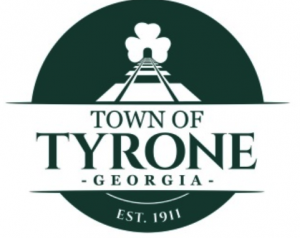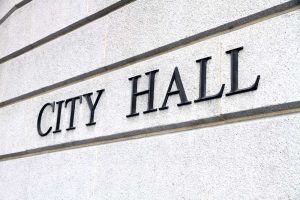Tyrone Mayor Don Rehwaldt during the annual State of Tyrone address Thursday night was up front with the effects of the recession on the local economy. Rehwaldt said the town is in satisfactory condition but must remain fiscally vigilant throughout the long-running recession.
Rehwaldt said he expected 2011 to be more financially challenging than last year, both for Tyrone and Georgia. And though the state will be faced with a deficit of more than $820 million due to the phasing out of federal stimulus funds, Tyrone is expected to be in a satisfactory financial position, Rehwaldt said.
The lengthy recession and the state’s 10 percent unemployment rate is mirrored in Tyrone by an increasing foreclosure rate.
“Businessmen continue to find difficulty in obtaining loans to either start new ventures or to continue in their current businesses. Commercial foreclosures, coupled with the reduced values of residential property, will cause property tax revenues to lessen,” Rehwaldt said. “The failure of the Fayette County (one-cent sales tax for transportation initiative) last year will also reduce our ability to plan or initiate any capital projects by approximately $250,000. This translates into reduced revenues to maintain the services residents have come to expect.”
Rehwaldt said there were 31 percent fewer residential building permits and 10 percent fewer commercial permits issued in 2010 as compared to 2009. The majority of the residential projects were for alterations, with only eight permitted for new home construction.
The recognition of these and other issues facing the residents of every community are not meant to cause undue concern, said Rehwaldt.
“It is meant to allow those unaware of the very real problems Tyrone is facing to, hopefully, become more aware of some of the elements facing the town and its citizens and to again state that Tyrone, even with its budget shortfall, is in a relatively satisfactory position,” he said.
The economy notwithstanding, Rehwaldt said there were a number of significant accomplishment and improvements that occurred last year. Among those were the acquisition of a Smart Trailer for police to better monitor traffic flows, upgraded tactical weapons for law enforcement, an additional emergency warning siren through negotiations with the county, an updated town procurement manual, up-to-date records disposition procedures, the codification of the town’s ordinances and a 26 percent decrease in major crime, a 44 percent decrease in thefts and an eight percent decrease in reported incidents.
“Will the town be able to provide services over and above the essentials (public safety and sanitation) such as maintaining our infrastructure? Probably. Will non-essential services such as library and recreation be curtailed? Probably not at this time, but unless revenues increase, maintaining these services at their current level may diminish,” Rehwaldt said.
“Will Tyrone be able to expand any non-essential services? Probably not. Steps taken in the past two years, such as reducing expenditures, curbing salary increases, delaying replacement hiring and staff volunteering to reduce hours, have helped Tyrone maintain a relatively stable posture,” said Rehwaldt.
Rehwaldt at the end of the address thanked the town council, town employees, department heads and volunteers for their continuous work on behalf of the town and its citizens.












Leave a Comment
You must be logged in to post a comment.